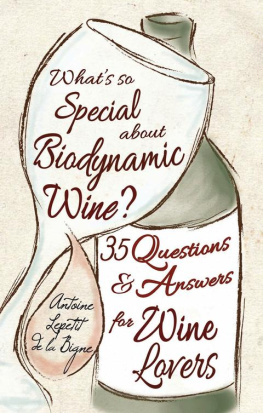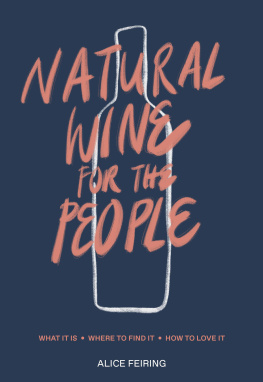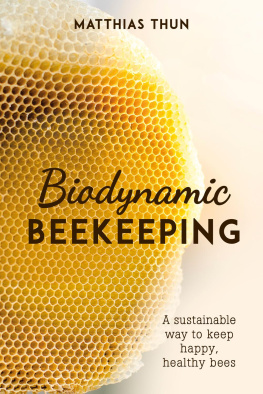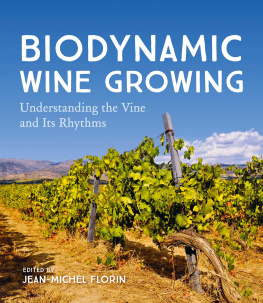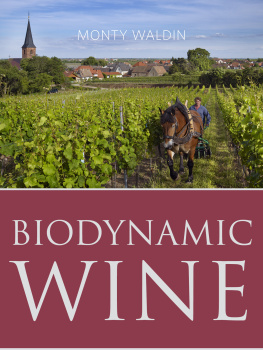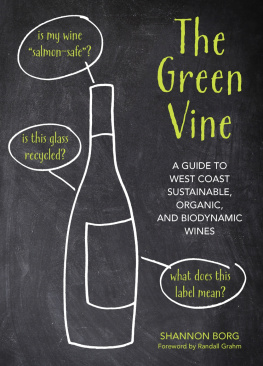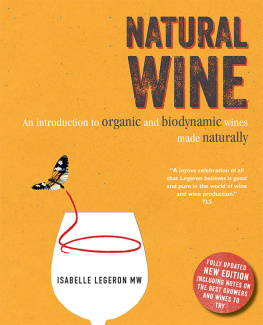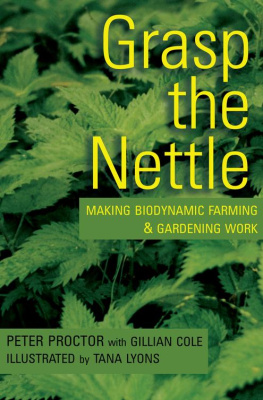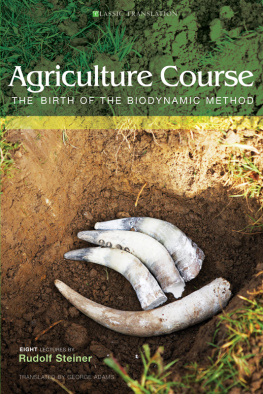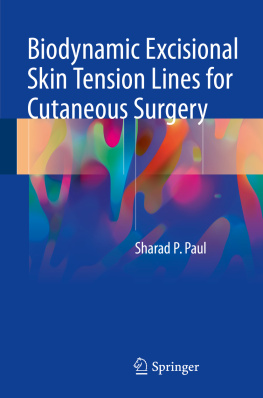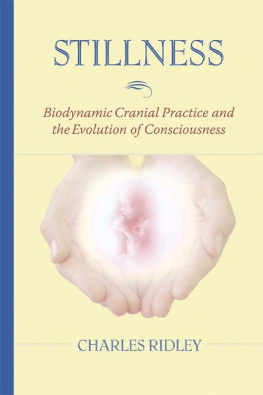One sentence of this introduction to biodynamic wine by Antoine Lepetit-de la Bigne remains imprinted in my mind because I believe it is essential to define the new relation of people with wine: In our post-industrial, overly-urbanised society, could wine be our last strong tie to the earth? Our civilisation, nobody will deny, tends to eradicate the old traditional relation of man with nature. Towns grow irrevocably, the countryside becomes a desert. As for agricultural products, they become more and more industrialised, technologically crafted, less and less the result of the ancestral marriage of human beings with the earth. Wine also can be technologically crafted and a lot of wines are made that way. The wine connoisseurs of our time feel deeply this loss of the old tradition, and this is why for them the quality of a wine is profoundly linked to its origin, to the earth it comes from. Is the wine I buy a good representation of the place it comes from? Has the vigneron, like a good midwife, been able to establish with their vineyards this living relationship that will allow their qualities and their character to be expressed at their potential best?
In their search for the best expression of a wines origin, vignerons inevitably come across the organic options, normal organic viticulture and biodynamics, since these methods aim at creating conditions where the terroir, that is, the soil and its environment, will emerge at their best.
Biodynamics, which deals essentially with what is not quantifiable life forces which science cannot measure, weigh or analyse represents a challenge in making itself understood by the public. Until recently it used to be mocked by scientists. A lot of rumours sprang up regarding dynamisation, the various preparations, cosmic influences This book is essential because, with simplicity and humility, it first answers those legitimate questions raised by a method that both fascinates and troubles the public, and second because it explains why the vignerons among them some of the most advanced of the industry find in biodynamics that link to the earth which is so essential for delivering the potential of terroirs which have been cared for by human hand for centuries. As with biodynamics now, so it was before our industrialised times; that is to say: Nature is an open book for those who cultivate the ground with their hands.
Who could be in a better place to write this book than Antoine Lepetit de la Bigne? The reasons are multiple: Antoine arrived in Burgundy a few years ago when he was very young, and my experience has shown me on many occasions how much, for a company or an industry, the arrival of new vision is important and enriching. Furthermore, having brilliantly achieved degree level in Science at the prestigious cole Polytechnique, Antoine successfully moved across to graduate in agronomical studies. From there, always guided by his questing and free spirit, he went into viticulture practice with a Domaine which is at the forefront of this biodynamics that science so often denigrates!
Antoine has absorbed all that science has taught him and he is now like many scientists who have spent their life studying methodically the vine and the wine and who, after these years of accumulated scientific knowledge, know that, in the making of a great wine, what you dont understand is more important than what you understand or can measure or analyse.
Intuition, observation, humility and, last but not least, rigour, become the key qualities of the vigneron. Through Antoines patient, careful and precise explanations, this book introduces us all, wine lovers, professionals, wine makers, sommeliers and others from the world of wine, to the fundamental lessons taught by biodynamics. The small voice of biodynamics has found its ambassador.
Aubert de Villaine, Domaine de la Romane-Conti
Dear reader and wine lover
Have you ever found yourself listening to a producer or wine merchant who raved on about the qualities of an organic or biodynamic wine using language such as: natural, mineral, grown with energy lines and cosmic forces, harvested with the moon ?
Maybe you thought this sounded so great that you rushed out to buy the wine. Maybe you experienced strange sensations when you tasted it. Maybe, even, you slept better after drinking it, without any unpleasant surprises such as a headache the next morning.
Or, as poetic as all this talk may seem, did it come across as rather obscure, trite, downright confusing, and not really respectful of all the scientific advances of the last two centuries?
In short, maybe you decided it was just the latest sales talk for describing even more qualities of terroir.
Over the last few years, when talking with clients during tastings at Domaine Leflaive and at the Puligny-Montrachet cole du Vin et des Terroirs, I have come to realise how much confusion surrounds biodynamics. Although this term has become quite fashionable in the wine world, few wine enthusiasts have a clear understanding of what biodynamics really is. Some have a completely false impression, and others have no idea at all.
The term biodynamic resonates strongly with our subconscious , and generally exposes a range of preconceived ideas, especially in our Western culture, and particularly in France.
It is for this reason that I wanted to write this book. I hope to provide you with an introduction to biodynamics which is brief and user-friendly in both its form and content, and which responds to the questions you might ask yourself.
It is not my intention to explore in-depth the philosophy of Rudolf Steiner, and even less to offer a growers handbook on biodynamic viticulture. Excellent works on this subject exist and are referenced in the bibliography (Franois Bouchet, Nicolas Joly, and Pierre Masson among others).
I have used clear language and sought to call on my knowledge of both science and the practice of biodynamic viticulture. The book reflects my current viewpoint and I assume full responsibility for it.
I want to thank the numerous wine enthusiasts around the world who have asked me the questions posed here, and who made me aware of the need for such a simple, comprehensible book. Although simplistic at times, it is intended to be a first step toward dispelling illusions about biodynamics. Afterwards, it is up to you to deepen your knowledge of the subject.
Antoine Lepetit de la Bigne
Ah, the big question that every wine enthusiast inevitably asks in their pursuit of perfection! To those looking for an immediate answer, I must say that I will avoid responding in a clear-cut manner at this, the beginning of the book. Dear reader, along the path I propose to follow in the world of biodynamics, you will form your own response to this question. It will become evident.
Given that biodynamic viticultural practices are more in harmony with the laws of nature (see question 11: In what way is biodynamics more respectful of nature?), I would, of course, be tempted to say that the resulting grape (the raw material from which wine is made) has greater potential. And then? A winegrowers skill also applies to the work in the cellar, the place where the potential is revealed or not (see question 16: In the winery: does biodynamics apply to vinification?). And what can be said about the concept of better wine? In todays world we are inundated with wine rankings and scores. These scores inevitably simplify each wine, yet are immensely reassuring for wine lovers who cannot taste the wines themselves, or formulate their own opinion. How many experts (professional or amateur) contribute to this with their influential opinions and, of course, the commercial and financial consequences for producers! The American wine critic, Robert Parker, was certainly the first, or in any case, the most emblematic in this trend. Today, however, every wine lover must break free from this by subjectively rediscovering and taking responsibility for their own likes and dislikes. It seems to me that in this respect, the increasing role assumed by women in the wine world, from growers to consumers, will be the primary catalyst for this necessary change (see question 20: How should a biodynamic wine be tasted?).

